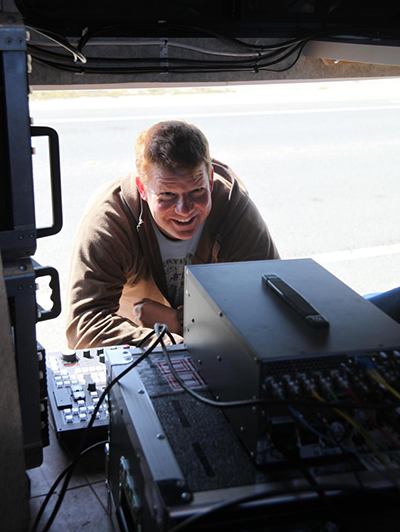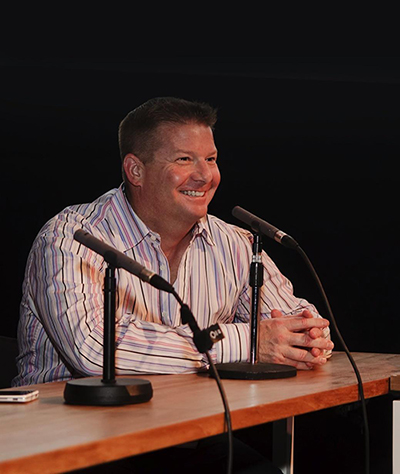Campus News
On the intersection of machines and media: Silver Slug Award helps career staff pursue life-long passion
Silver Slug Award recipient and UCSC staff Jeffrey Weekley re-ignites his passion with computational media and pursues his Ph.D. debt-free.


After three years with UC Santa Cruz as a team lead of IT Research Engagement and Support and nearly three decades of professional experience, Jeffrey Weekley (Ph.D., computational media ’23) is pursuing a lifelong passion as he works towards his Ph.D. at UCSC.
With the help of the Silver Slug Award—sponsored by UCSC’s Retirees Association—Weekley is pursuing his doctoral degree debt-free.
“This scholarship means that I don’t have to take out a student loan, I don’t have to make any other sort of big sacrifices per quarter, and I can afford to pay the remainder of my tuition out of pocket,” Weekley said. “This really helps.”
The Retirees Association presents the Silver Slug Award to UCSC career staff or dependents of career staff who are pursuing a degree at the university.
Weekley’s schedule consists of a full-time job, his responsibilities as a part-time doctoral student, attending conferences, and furthering his projects in computational media. Weekley was unaware that applying for a scholarship was a possibility, until one of his professors spoke to him about the Silver Slug Award. The Silver Slug Award is his first academic scholarship.
“I’d never even stopped to consider whether or not I could get a scholarship,” Weekley said. “A lot of my professors, when they heard that I’m paying the tuition myself, would say ‘what, that’s crazy!’ Somebody said to me that there’s a specific scholarship just for staff I should apply for, and I got the award.”
With his newfound financial backing, Weekley is eager to dive further into his computational media studies. His work aims to improve scientific communication through narratives in stories and games and create media that provides communication tools for special populations.
Weekley hopes his work will bridge the gap between scientists and the general public and fix the communication divide that often arises for those with special needs that are often neglected, from those with dyslexia to adults or children with learning disabilities.
Re-igniting a passion
Weekley earned his B.A. in media and communications from the University of Northern Iowa in 1988 and his master’s in computer science at the United States Naval Postgraduate School. He joined UC Santa Cruz with almost three decades of professional experience. His work directly intersected media, communications, 3D modeling, and visualization but for the majority of his career, there wasn’t a title that defined his area of expertise.
“I was never really studying computer science,” Weekley said. “Making models is a lot like drawing, it’s very artistic. I just sort of existed in this world feeling like a square peg in a round hole: I called myself a computer scientist, but I didn’t really feel like a computer scientist.”
The unfamiliarity with the computational media field in the ’90s led Weekley to feel stagnant in his career progression—up until a chance encounter with Katherine Isbister of UCSC’s computational media department.
Weekley met Isbister at a conference at UCSC Extension, where she explained the computational media field, an area existing at the intersection of computer science, game design, media communication, and engineering. Weekley left the conference with a new perspective on the work he spent the last 20 years of his life and a new understanding of how to classify his own professional identity.
“It was a revelation,” Weekley said. “I finally realized that this is what I’ve been doing all these years—I am a computational media person.”
After many years searching for the label to best describe his goals, Weekley is proud to wear the title of computational media.
“There’s an element to computational media particularly situated at UC Santa Cruz, and that’s the idea of social purpose,” Weekley said. “We’re not just making technology for technology’s sake: we’re really trying to look at societal problems and find ways to contribute to a solution.”